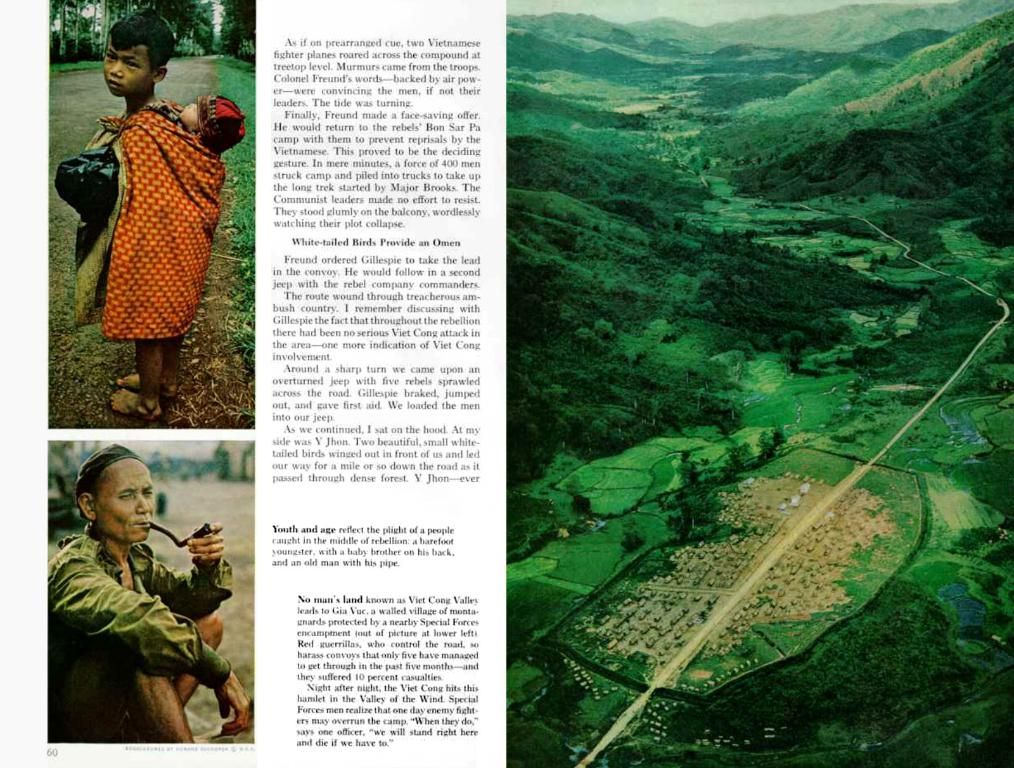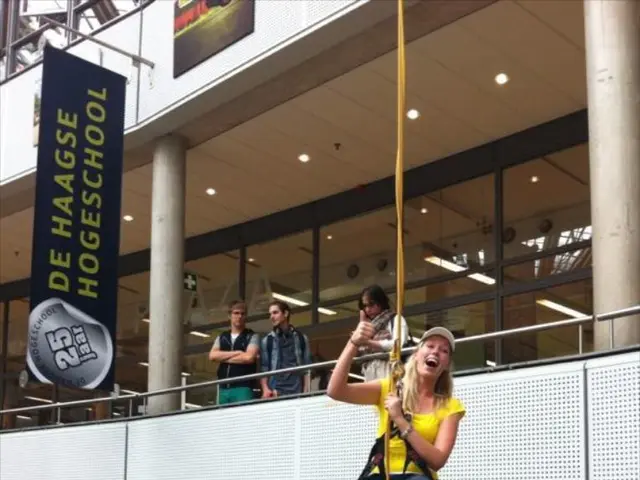Struggling Sisters in Gaza: Disability Magnifies Overlooked Israel-Palestine Conflict - Aseel and Afaf subsist in a cramped displacement tent, devoid of essential aid, including sustenance.
Life in the Shadows of Shati Refugee Camp, Gaza
Nestled within the sweltering heat of Shati, one of Gaza's overcrowded displacement camps, 30-year-old Raneem Abu Al-Eish tends to her two sisters, Aseel, 51, and Afaf, 33. Their laughter occasionally punctuates the continuous humdrum, the cries of children outside serving as the only other sound.
Heart-wrenching Stories you must read
Aseel and Afaf are afflicted with celiac disease and intellectual disabilities that strain their communication, understanding, and behavior. These conditions have become more pronounced under the pressure of war and displacement.
Their disabilities often leave them overwhelmed, their environment a source of constant distress. Despite their struggles, Raneem cannot pinpoint the medical term for their condition, but at times, their symptoms mirror those of Tourette's syndrome.
"Jokes at their expense shatter them"
Their cramped tent houses seven family members: Raneem, her two sisters, their elderly parents, and another sister with her husband. Raneem's mother is weak, and her father is still recovering from an injury sustained during Israel's relentless attacks on Gaza. As a result, Raneem bears the brunt of their care.
The family lost their home in Jabalia camp's Block 2 eight months ago, and they have since moved from home to home, from makeshift shelters to overcrowded United Nations schools, and now, they are in this tent. By midday, the tent traps the heat, and at night, its thin walls let in the cold. Privacy and dignity are all but impossible under such conditions. "When they need to change, we try to get the others to step out," Raneem reveals. "But it's not always possible."
Yet, that's just a portion of their hardships. Aseel and Afaf are continually bullied due to their conditions. "People don't understand what my sisters go through," Raneem confesses softly. "They mock them based on appearances, assuming they're fine, but they're not."
Life inside the camp is overwhelming for Aseel. "She finds it hard to cope with noise or sudden changes," Raneem explains. When these situations arise, Aseel becomes distressed, lashing out, shouting, and crying.
Afaf, on the other hand, battles uncontrollable movements and impulsive behaviors. "A small argument or loud voice can trigger her," Raneem adds. The spectacle of visiting communal bathrooms brings repeated humiliation. "People laugh, make cruel remarks, and it devastates them," Raneem profoundly states.
The family's darkest hour
The family's worst blow came six months ago, when Mohammad, Raneem's 22-year-old brother, was taken by Israel. While Mohammad was receiving surgery for a hand injury at Kamal Adwan Hospital, Israel raided the hospital on October 25th and seized him. Since then, their family has been left in the dark about his whereabouts.
Mohammad was the family's guide in navigating the external world. He took care of their medications, hospital visits, and dealings with aid agencies. Without him, the sisters are entirely on their own.
Since his detention, they've faced worsening food shortages and a scarcity of medical care. "He was their protector," Raneem claims, her voice quivering. "Now we have no one."
由于昼暮闪烁的中东бора埃泫和埃拉埃沙戛特斯菲三姐妹在
- Breaking news highlights the ongoing struggles of the Abu Al-Eish family living in the shadows of Shati Refugee Camp, Gaza.
- The family's living situation has significantly impacted the health-and-wellness of Aseel and Afaf, who suffer from celiac disease and intellectual disabilities.
- In uncertain political climates and persistent war-and-conflicts, mental-health becomes a pressing concern, as seen in the family's struggles with bullying and a lack of understanding from their community.
- As Raneem navigates lifestyle challenges while caring for her disabled sisters, she finds respite in fitness-and-exercise, maintaining a healthy and active routine to cope with stress.
- Travel opportunities for cultural-travel and exploration are seemingly distant dreams for the family, their focus instead lying in ensuring their basic needs and the health of their loved ones.
- General-news outlets have reported on the plight of families like the Abu Al-Eishes, shedding light on the far-reaching effects of war and displacement on the environment, health, and daily lives of those living in Gaza.






